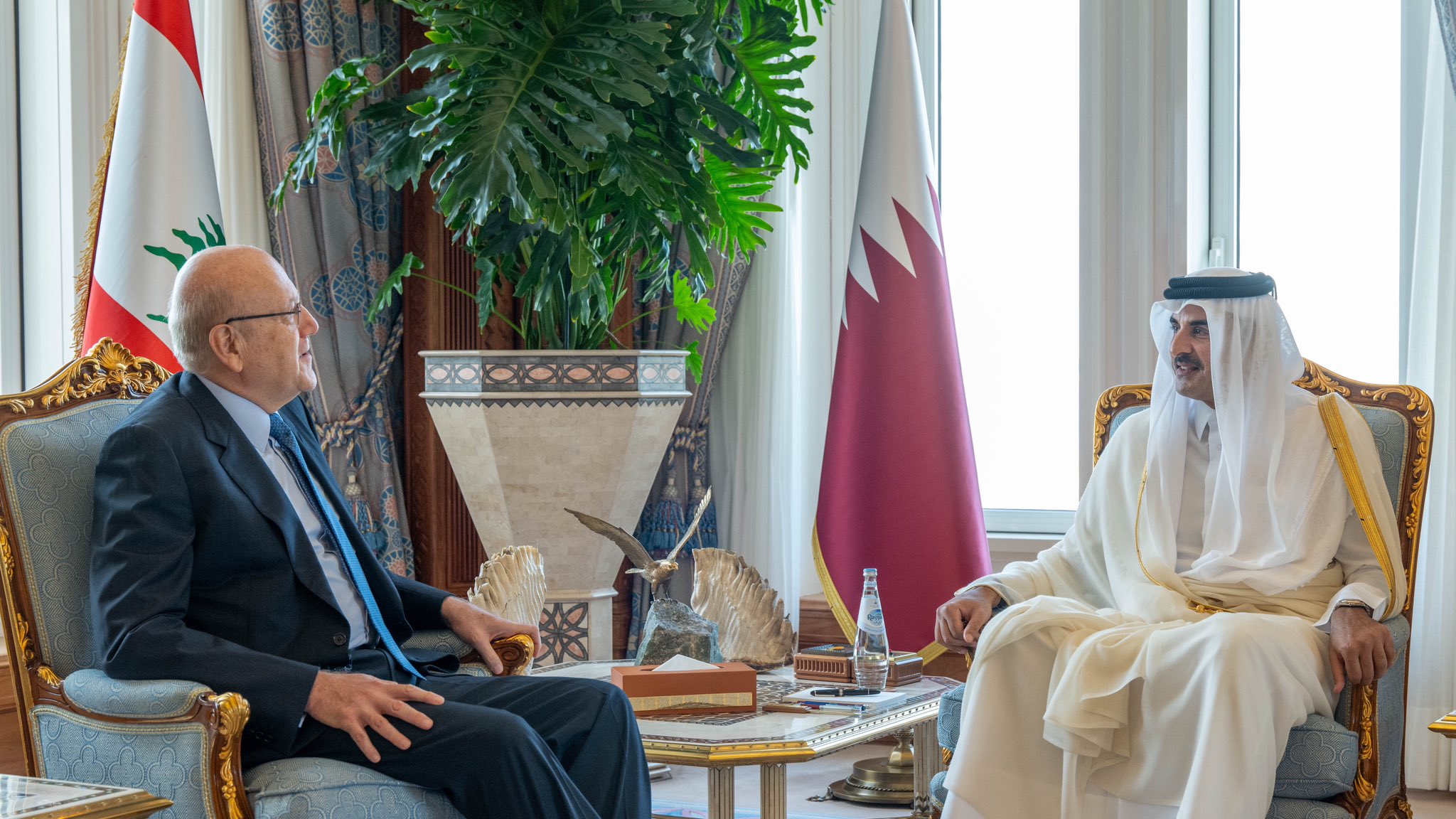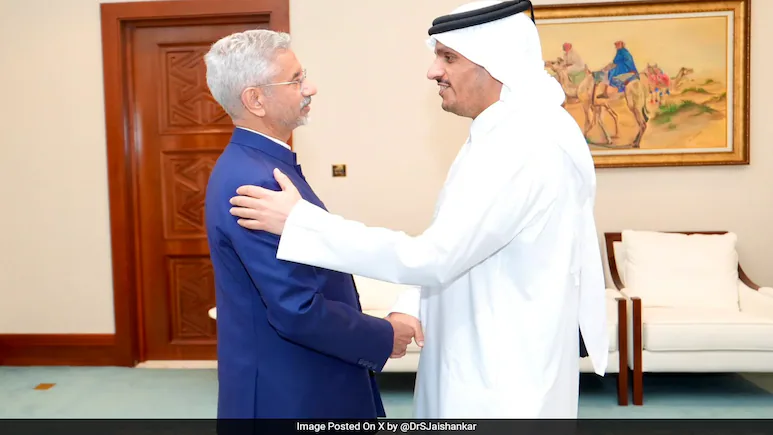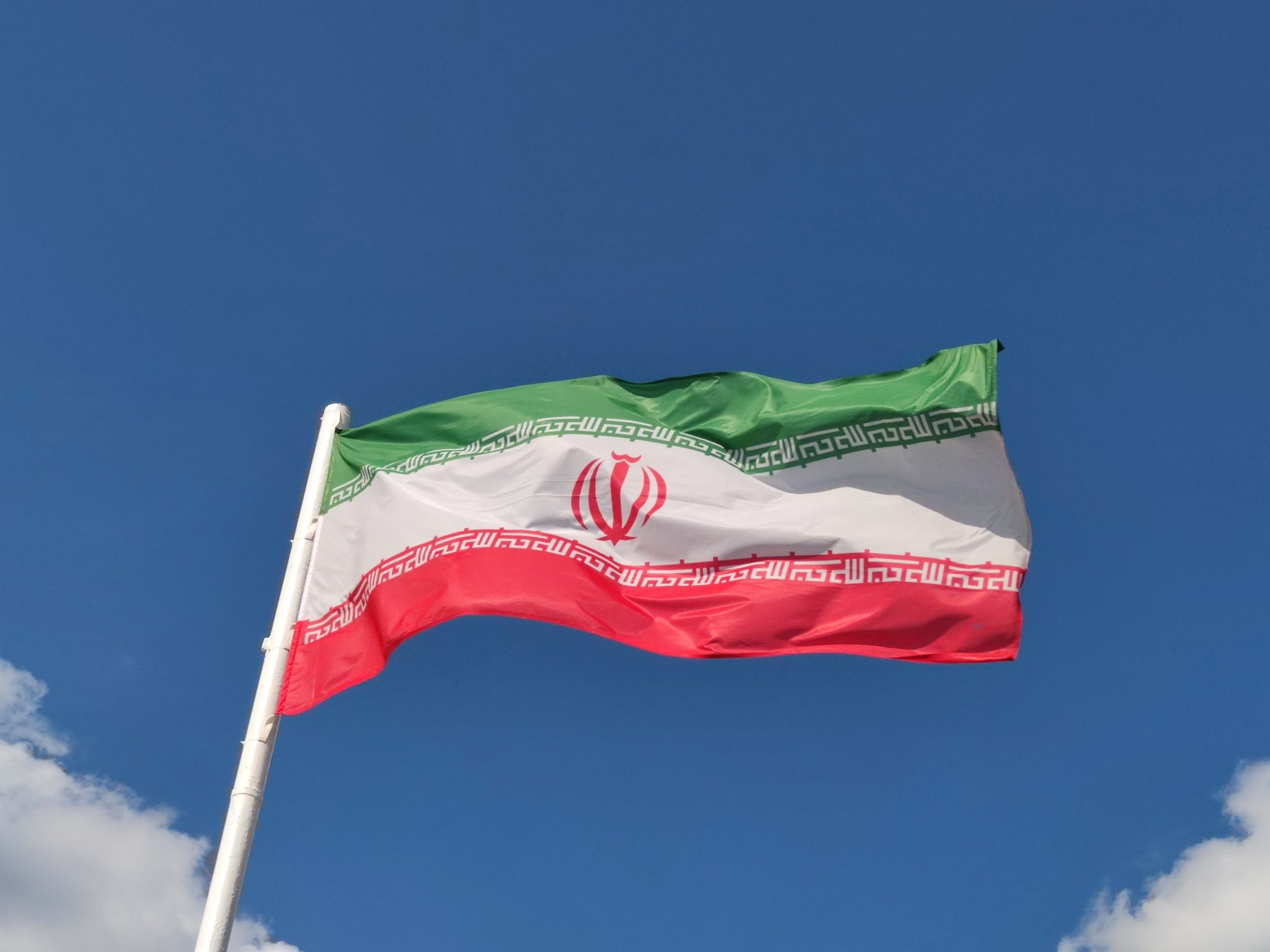Lebanon’s fragile infrastructure and collapsing economy cannot afford another deadly war.
Lebanon’s caretaker Prime Minister Najib Mikati met Qatar’s Amir Sheikh Tamim bin Hamad Al Thani at the Amiri Diwan in Doha on Sunday, where talks centred on the developments in Palestine and the region.
“The meeting discussed the latest developments in the Palestinian territories and the region, in addition to the bilateral relations between the two brotherly countries and ways of enhancing and developing them,” Qatar’s state news agency (QNA) reported.
Qatar’s Prime Minister and Minister of Foreign Affairs Sheikh Mohammed bin Abdulrahman bin Jassim Al-Thani was also in attendance, QNA added.
The meeting comes amid growing regional concerns over the ongoing Israeli bombardment of Gaza, which is fast approaching one month without an effective ceasefire in sight. Occupation forces (IOF) have instead doubled down on their attacks on the Strip and threatened a ground invasion.
Within 23 days, Israel has killed more than 8,000 people in Gaza, 3,195 of which are children. More than one million people have been internally displaced, the majority of which are taking shelter in hospitals and schools.
Tensions have also spread to the shared Lebanese and Israeli border in recent weeks, with Hezbollah and the IOF exchanging attacks in the area. On 13 October, the IOF targeted an international press crew while they were covering the cross-border attacks near the Lebanese village of Alma al-Shaab.
The attack killed Reuters’ Lebanese video journalist Issam Abdallah and injured six other members of the press, including two Al Jazeera journalists—all of which were identifiable by their blue flack jackets and helmets.
Last week, Lebanon said it was submitting a formal complaint to the UN Security Council over Israel’s “deliberate killing” of Abdallah.
“The Ministry of Foreign Affairs and Expatriates instructed the Permanent Mission of Lebanon to the UN in New York to submit a complaint to the UN Security Council about Israel’s deliberate killing of the martyr Lebanese journalist Issam Abdullah, who worked for Reuters, and the wounding of other journalists from Agence France-Presse and Al Jazeera,” the Lebanese foreign ministry said on 14 October.
Concerns over all-out war
The cross-border attacks have raised concern over a potential spillover into Lebanon. In 2006, Israel waged a deadly 34-day war on Lebanon, killing 1,200 mostly Lebanese civilians. The war ended with Hezbollah forcing Israeli soldiers out after weeks of intense attacks.
Last week, the United Nations warned that more than 19,000 people in Lebanon have been internally displaced since early October when Israel launched one of the deadliest wars on Gaza.
Lebanon’s fragile infrastructure and collapsing economy cannot afford another deadly war.
For four years, Lebanon’s economy has been facing its worst downfall in decades, with the Lebanese Lira losing more than 90% of its value to the US dollar. In 2019, mass protests broke out in Beirut due to the lack of basic resources.
Lebanon’s worst economic collapse was further exacerbated in 2020 during the Covid-19 outbreak and the deadly Beirut Port explosion.
On Thursday, the Lebanese government assured its citizens that it was working on a preventive plan in case a war breaks out, amid rising concerns.
“The Cabinet approved the plan of the Ministry of Public Works and Transport and the Ministry of Health regarding disaster management,” Lebanese Media Minister Ziad Makari told reporters in Beirut.
Separately, Lebanon’s Minister of Public Works and Transport Ali Hamiyah said the government is “prepared for any repercussions or any matters that could threaten the infrastructure of its important facilities.”
“The plan concerns bridges, roads and the four commercial ports – Sidon, Tyre, Beirut and Tripoli – and Beirut-Rafic Hariri International Airport,” Hamiyah said.
Last week, Qatar said it is actively engaging in preventing Israel’s war on Gaza from turning into a regional conflict that could affect the rest of the world.
“We are confident that with the help of our regional partners we will be able to contain this conflict, but certainly the dangers of this conflict becoming a wide-spanned regional conflict is something that is not only a threat to us here in the region,” Doha’s foreign ministry spokesperson Dr. Majed Al-Ansari said on Tuesday during a weekly press briefing in response to a question from Doha News.
The Qatari diplomat also pointed out that “the developments on the ground are certainly alarming, especially in the West Bank, and south Lebanon.”
Meanwhile on a diplomatic level, Qatar has been working to resolve Lebanon’s longstanding obstacle to name a president.
Qatar is a key member of the quintet group – Saudi Arabia, Egypt, the United States, and France – which has engaged in talks since February under an initiative led by French Presidential Envoy for Lebanon Jean-Yves Le Drian.
The group first met in Paris before convening for the second time in Doha in July.
However, Doha appears to face an uphill task amid a deep political divide between the Lebanese parties. The crises-stricken country has failed to elect a president at least 12 times since former President Michel Aoun left office in October last year.
The divide between the Lebanese political parties has also appeared to widen in light of the latest border tensions between Hezbollah and Israel.







